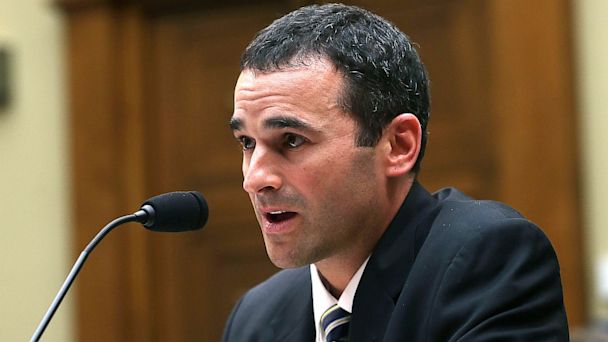IRS Says It Screened Groups Based on 'Questionable Criteria' Until June

(Mark Wilson/Getty Images)
WASHINGTON - Not only did the Internal Revenue Service continue using inappropriate criteria to screen organizations applying for tax-exempt status until mid-June, it now appears that in addition to conservative groups, liberal groups were also targeted for higher scrutiny, IRS Principal Deputy Commissioner Danny Werfel said today.
Werfel also acknowledged that until he discovered the use of such criteria during an internal review of the agency, other "be on the lookout" or BOLO lists were in place that screened applications for 501(c)4 tax exempt status based on a wide range of "questionable criteria" including the word " progressive."
Though the public outrage over the IRS targeting initially focused on conservative groups, new documents released late on Monday show that groups identified as "progressive" were also singled out on BOLO lists by the IRS from 2010 until at least July 2012.
And a slew of other groups, including green energy organizations, medical marijuana groups, and "paying national debt" groups were also singled out.
The documents, which were made available to the House Ways and Means Committee appear to bolster the IRS's long-standing assertion that the practice of singling out groups was not politically motivated, but rather it stemmed from an effort to identify groups that may have been engaged in more political activity than is allowed under the tax code.
Previously, a Treasury Inspector General report only identified terms like "Tea Party" and "Patriot" that were used to identify conservative-leaning groups.
"So there were a series of these types of lists being used in this part of the IRS as part of their review of tax exempt applications," Werfel told reporters on a conference call today. "When I got to the IRS, we started a more comprehensive review of the operations of this part of the IRS, have been looking at documents and business operations, and we did determine and discover that there are other BOLO lists in place, and upon discovering that we also found that we believe there continued to be inappropriate or questionable criteria on these BOLO lists."
"So, based on that finding, once we came to that conclusion, we took immediate actions to suspend the use of these lists in the exempt organizations unit within the IRS," he said.
Werfel suspended the use of those lists on June 12, and more formally on June 20, but they were in place and in use by the IRS's tax exempt office until just two weeks ago.
In a statement, the IRS said they have provided copies of these BOLO lists to the appropriate Congressional committees. Werfel said the agency is also preparing to redact confidential information in order to release more information to a broader group of lawmakers soon.
"We're getting to a point where we are very close to completing that process and being able to transmit that information to a broader set of audiences on the Hill, of what those BOLO lists contain, so right now, at this moment on this call, it would be premature for me to get into specifics, but what I can assure you is that that information is being produced by the IRS for broader audiences, and it will be available very soon," he said.
The findings come in conjunction with the release of a new report based on Werfel's 30-day internal investigation into the IRS's targeting of conservative groups, which the agency acknowledged was widespread between 2010 and 2012.
The report outlined "significant management and judgment failures" at the IRS that contributed to the practice singling out groups with the words "Tea Party" or "Patriot" in their names.
But the investigation did not find any "intentional" wrongdoing on the part of IRS employees, nor did it find that anyone outside of the IRS was involved in the practice.
Werfel is scheduled to testify before the House Ways and Means Committee on Thursday.
Werfel said five people have been replaced in the chain of command for the unit responsible for the targeting: the IRS commissioner, the deputy commissioner for services and enforcement, the acting commissioner of the Tax Exempt and Government Entities Division, the director of exempt organizations, and the director of rulings and agreements.
The use of "be on the lookout" or BOLO terminology has been completely suspended. And the IRS stopped using terms like "tea party," "patriot" and "9/12 project" to screen groups in May 2012, according to the inspector general report.
The IRS will also now institute a new process for 501(c)4 applications which have been in the IRS's backlog for more than 120 days to be approved "if they self-certify that no more than 40 percent of their expenditures and voluntary person-hours will go toward political campaign intervention activities and that at least 60 percent of their expenditures and voluntary person-hours will go toward promoting social welfare."
A spokeswoman for House Ways and Means Committee Chairman Dave Camp said that the IRS's targeting of conservative groups went well beyond the use of BOLO terms.
"It is one thing to flag a group, it is quite another to repeatedly target and abuse conservative groups," she said. "Tea Party groups were not just on a BOLO they were (1) sent intrusive and inappropriate questions, (2) had their donors threatened with gift taxes and (3) had their confidential information leaked."
"The Committee has welcomed all groups, regardless of affiliation, that feel they may have been targeted for extra scrutiny to come forward. The Ways and Means Committee will continue to investigate the IRS's inexcusable actions when the IRS comes to testify on the report this Thursday."